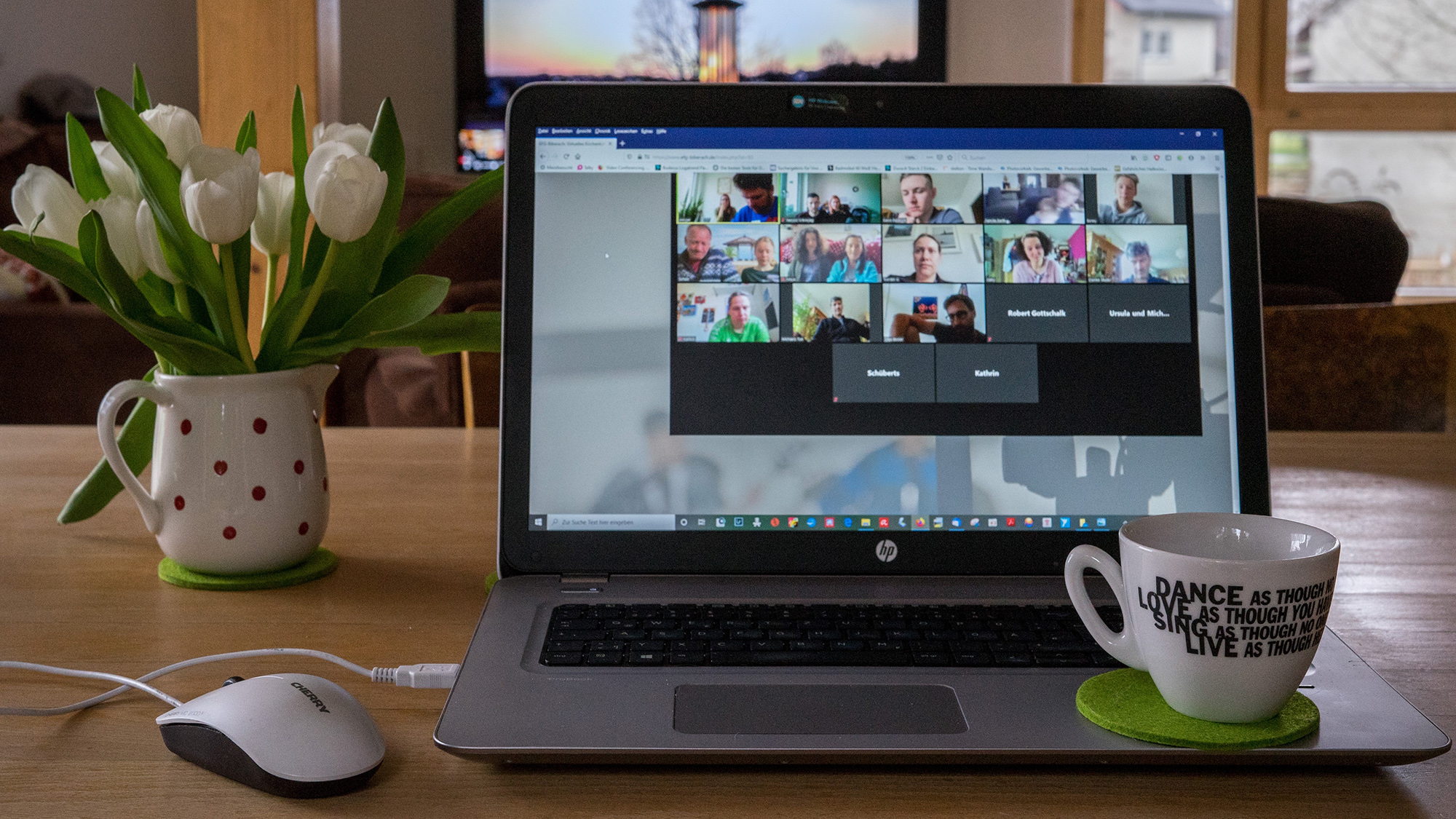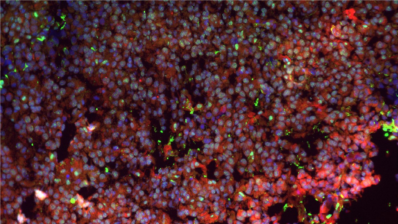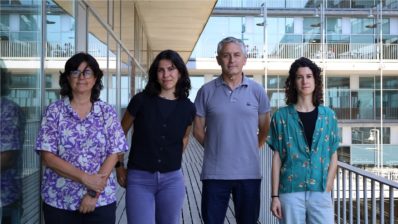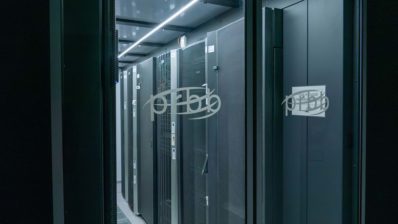Few acronyms have reached such popularity as quickly as SARS-CoV-2 has done in the last months. This new virus is the cause of the current global pandemic which has caused more than 2,350,000 affected people and 160,000 deaths at the time of writing – a number that is exponentially growing. The new coronavirus has certainly had a huge impact not only on our health, but on all spheres of our life.
From social relationships to shopping and education, we have been forced by this tiny infectious particle to dramatically change the way we do things. Research has been no exception. Indeed, science is at the forefront of the fight against SARS-CoV-2, with coronavirus-related research being speed up all over the world, including at the PRBB centres. But research on other topics must also go on – albeit often in different forms.
With many laboratories closed or left to their minimum expression – only with those who need to go to maintain cell lines or animal strains, or to finish ongoing experiments that cannot be put on halt -, the PRBB centres have also adapted to the current situation. Here are some examples.
Hospital del Mar Medical Research Institute (IMIM)
The IMIM has started a series of webinars in which, in line with governmental indications, both the audience and the speaker are confined to their own homes. The first of the #IMIMSeminarsAtHome took place on March 25 and saw the new IMIM Director, Joaquim Arribas, talking about immunotherapy against breast cancer. Talks by Anna Bigas on cancer and stem cells, by Juan Pablo Horcajada on the Covid-19 related research taking place at the IMIM, and by Oscar J Pozo on stress markers followed suit.
The live talks, which are taking place weekly, have the usual structure; a brief presentation of the speaker by a host, the actual talk, where the audience can follow the slides, and the final questions, which anyone can send through the comments tools. There’s no limit to the audience, but registration is needed. These first sessions have reached hundreds of people.
The initiative has a double aim:
- To take advantage of these times of less experimental activity in order to be up to date on all areas of research covered at IMIM – such as neurosciences, epidemiology, cardiovascular diseases or biomedical informatics and oncology.
- To foster Open Science activities at IMIM, by posting all the videos on the IMIM Youtube channel, where anyone can see them.
Institute for Evolutionary Biology (IBE: CSIC-UPF)
Without access to the lab, one cannot do experiments, so there’s more time for other things, such as thinking, writing – from papers to a thesis or a book – or teaching. Some IBE researchers are taking the time to bring science closer to society through some free MOOCs, such as Why Biology Matters: Basic Concepts or Why Biology Matters: The Genome and You. Also, the Multicellgenome lab has created an online game to test your knowledge about the tree of life: give it a go!
The administration team also needs to be coordinated and make sure that everything keeps steady. They do so via videoconference every couple of days.
Department of Experimental and Health Sciences, Pompeu Fabra University (DCEXS-UPF)
Being a university department, the DCEXS-UPF has not only research, but also teaching at its heart. Therefore, the adaptation has included doing all teaching activities online. The teaching staff are busy getting up to date with webinars offered by the university on several tools for online classes, how to plan your teaching and how to create and grade exams in a virtual environment. PhD candidates are also defending their thesis virtually – an added challenge to an already demanding task!
Regarding research, the department saw its first virtual PRBB Computational Genomics seminar on April on single-cell analysis of cellular aging.
European Molecular Biology Laboratory – Barcelona (EMBL Barcelona)
The facilities at EMBL Barcelona are closed, but the 40-strong staff are still ‘seeing’ each other in their virtual ‘coffee breaks’ – which happen twice a day and where anyone can join to socialise while enjoying a coffee or tea from their own sofa. They are also keeping busy with their now virtual lab meetings, journal clubs and the weekly unit meetings, where all members of staff join to listen to a few of the researchers talking about their most recent work.
Virtual conferences are on the menu these days, with EMBL transforming its international meeting on the four-dimensional genome to live streamed oral presentations, digital poster sessions and online group discussions. The event, which took place on March 30-31, was a success, with more people attending than were registered for the face-to-face meeting.
EMBL Barcelona is also offering online courses to their staff, to help them manage the transition to home working, such as “Making home working work”, “Managing remote teams”, or “Personal effectiveness for remote workers”. You can read how the individual researchers are dealing with the confinement at the EMBLog Barcelona.
Centre for Genomic Regulation (CRG)
The CRG has now become one of the two nodes in Catalonia in charge of Covid19 mass-testing. As the other centres, the rest of the non-coronavirus related research is being slowed down.
Scientists are switching their wet-lab experimental work for data analysis and paper writing. Which has also its positive side; as group leader Bernhard Payer puts it, “it gives us important time to reflect and think more deeply about our projects”. His advice on how to best make use of this time: “work up your backlog in data analysis, paper writing and literature review, (re)assess your project and brush up your bioinformatics skills, if you have extra time.
Barcelona Institute for Global Health (ISGlobal)
Being a centre for global health research with expert epidemiologists, ISGlobal is currently 100% absorbed in the coronavirus pandemic. Even researchers at the centres that study other topics, such as child health or pollution, are also now finding time (at home!) to reflect on the secondary effects of this global health crisis – and the measures taken by governments to face it. You can read some of these reflections on the centre’s blog.
The research groups also meet online for weekly updates and scientific seminars and training are also done online. Also, the staff internally share homemade videos with tips to a better confinement, and are kept abreast of the latest pandemia news.
Resources
Confinement is also a good time for reading, especially on topics that are not your particular expertise – something that helps broadening your mind. Again, researchers at the PRBB centres come up handy: in ellipse you can find a selection of their books on different topics.
Finally, a reflection by Isabelle Anguelovski from IMIM on how the Covid-19 crisis could help transform the academia work ethos – for the better.







